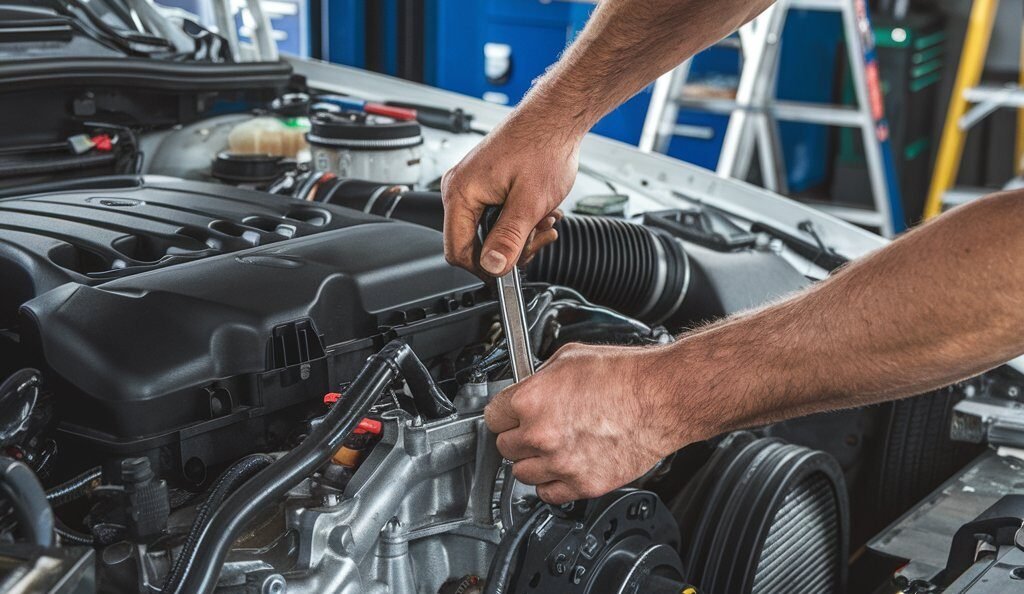
Maintaining a car is no small feat and at some point most vehicle owners will face the challenge of auto repair. Whether it is a simple oil change or a complex engine overhaul, understanding the basics of auto repair is crucial for keeping your car in excellent condition. For professional assistance, turning to Certified Automotive Specialists ensures your vehicle receives top-notch care and expertise. This article explores the essential aspects of auto repair to help you stay informed and confident as a car owner.
Importance of Regular Maintenance
Regular maintenance is the foundation of a well functioning vehicle. Ignoring routine checks can lead to costly repairs down the line and even compromise your safety. Simple tasks like oil changes, tire rotations, and brake inspections can prevent significant issues such as engine failure or brake malfunctions. Establishing a schedule for periodic maintenance is key to prolonging your car’s lifespan and enhancing its performance.
- Benefits of Routine Maintenance:
- Increases fuel efficiency.
- Prevents expensive future repairs.
- Enhances road safety.
- Maintains vehicle resale value.
Common Auto Repair Issues
Unexpected car problems can happen at any time. You can save time and money by being aware of frequent issues. Here are some frequently encountered auto repair issues:
- Engine Problems
A vehicle’s engine is its heart, and any malfunction here can lead to major inconveniences. Common signs of engine trouble include strange noises, overheating, and reduced performance. Regular oil changes and inspections can help prevent engine problems.
- Brake System Repairs
Your car’s brake system is essential for safety. If you notice squealing noises, reduced braking power, or a spongy brake pedal, it’s time to get your brakes checked. Replacing brake pads and ensuring the hydraulic system is in good condition can address most brake-related issues.
- Transmission Repairs
Transmission issues often manifest as difficulty shifting gears, slipping gears, or leaking transmission fluid. Ignoring these signs can lead to severe damage, so it’s essential to act promptly.
- Electrical System Issues
Modern vehicles rely heavily on electrical systems. Faulty wiring, dead batteries, or alternator issues are common concerns. Routine checks can help identify and fix these problems before they escalate.
DIY Auto Repairs: What You Can Do
Not every auto problem necessitates visiting a mechanic. With the right tools and knowledge, some repairs can be handled at home.
Basic Repairs You Can Perform:
- Replacing Air Filters: Changing a clogged air filter can improve your engine’s efficiency.
- Changing Engine Oil: Regular oil changes keep your engine lubricated and running smoothly.
- Replacing Windshield Wipers: This quick fix ensures clear visibility during adverse weather.
- Checking Tire Pressure and Treads: Properly inflated tires with good tread improve safety and fuel economy.
However, it is important to recognize your limits. Complex repairs, such as engine diagnostics or transmission work are best left to professionals.
How to Pick the Best Auto Repair Facility
For high-quality service and peace of mind, choosing the correct vehicle repair company is essential. Making the right decision might be overwhelming when there are so many options available.
Advice for Selecting a Trustworthy Auto Repair Facility:
- Read Reviews: Online reviews and testimonials can provide insight into the shop’s reputation.
- Request Estimates: To prevent overspending, compare costs from several stores.
- Inquire About Warranties: A shop that provides labor and part warranties shows that they are confident in their job.
- Observe the Shop Environment: A clean and organized shop often reflects professionalism and attention to detail.
The Role of Technology in Auto Repair
The automotive repair industry has evolved significantly with the integration of advanced technology. Diagnostic tools and software now enable mechanics to pinpoint issues with precision, saving time and money.
Benefits of Modern Technology in Auto Repair:
- Enhanced Diagnostics: Tools like OBD-II scanners quickly identify problems.
- Eco-Friendly Solutions: Advancements in technology promote sustainable practices, such as hybrid and electric vehicle repairs.
- Improved Communication: Many shops now use apps to update customers on repair progress.
Staying informed about these technological advancements can help you make better decisions when it comes to maintaining and repairing your car.
Preventive Measures to Avoid Costly Repairs
Prevention is always better than cure, and this is especially true for cars. By taking preventive measures, you can minimize the risk of expensive repairs.
Simple Steps for Prevention:
- Observe the manufacturer’s instructions: Follow the suggested service schedule.
- Pay Attention to Warning Lights: Don’t ignore dashboard indicators; they’re there for a reason.
- Drive Responsibly: Avoid aggressive driving, which can wear out your car’s components.
- Keep Fluids Topped Off: Regularly check and refill oil, coolant, and transmission fluids.
Conclusion
Auto repair is an essential aspect of vehicle ownership, and staying informed can save you time, money, and stress. From routine maintenance to choosing the right repair shop, understanding the basics ensures your car remains reliable and safe. While DIY repairs can handle minor issues, complex problems should always be entrusted to professionals. Remember, working with Certified Automotive Specialists guarantees expert care, so your vehicle is always in good hands. With proper attention and timely action, you can enjoy a smooth and trouble free driving experience for years to come.


